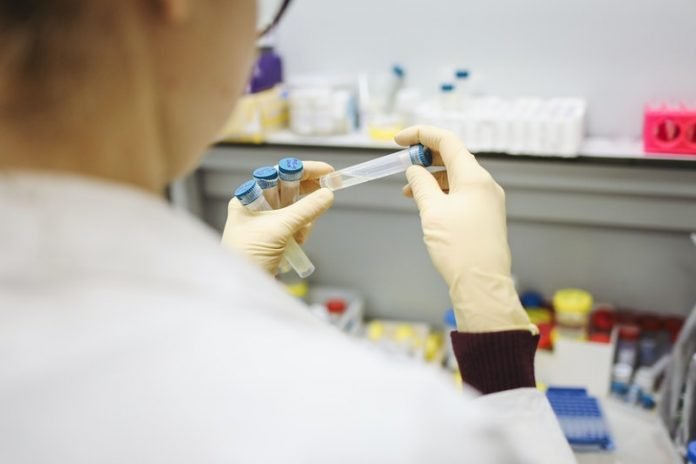
In a recent study at Johns Hopkins Medicine, researchers found the key to stopping COVID-19 devastating impact—blocking a protein that enables the virus to turn the immune system against healthy cells.
Based on their findings, the researchers believe that inhibiting the protein, known as factor D, also will curtail the potentially deadly inflammatory reactions that many patients have to the virus.
Making the discovery even more exciting is that there may already be drugs in development and testing for other diseases that can do the required blocking.
The study is published in Blood. One author is Robert Brodsky, M.D.
Scientists already know that spike proteins on the surface of the SARS-CoV-2 virus—making the pathogen look like the spiny ball from a medieval mace—are the means by which it attaches to cells targeted for infection.
To do this, the spikes first grab hold of heparan sulfate, a large, complex sugar molecule found on the surface of cells in the lungs, blood vessels, and smooth muscle making up most organs.
In the study, the team discovered that when SARS-CoV-2 ties up heparan sulfate, it prevents factor H from using the sugar molecule to bind with cells.
Factor H’s normal function is to regulate the chemical signals that trigger inflammation and keep the immune system from harming healthy cells.
Without this protection, cells in the lungs, heart, kidneys, and other organs can be destroyed by the defense mechanism nature intended to safeguard them.
In a series of experiments, the team used normal human blood serum and three subunits of SARS-CoV-2 spike protein to discover exactly how the virus hijacks the immune system and endangers normal cells.
They discovered that two of the subunits are the components that bind the virus to heparan sulfate, and in turn, disabling the complement regulation by which factor H deters a misdirected immune response.
In turn, the resulting immune system response to chemicals released by the lysing of killed cells could be responsible for the organ damage and failures were seen in severe cases of COVID-19.
Most notably, the research team found by blocking another complement protein, known as factor D, which works immediately upstream in the pathway from factor H, they were able to stop the destructive chain of events triggered by SARS-CoV-2.
They hope that their work will encourage more study into the potential use against COVID-19 of complement-inhibiting drugs already in the pipeline for other diseases.
Copyright © 2020 Knowridge Science Report. All rights reserved.



